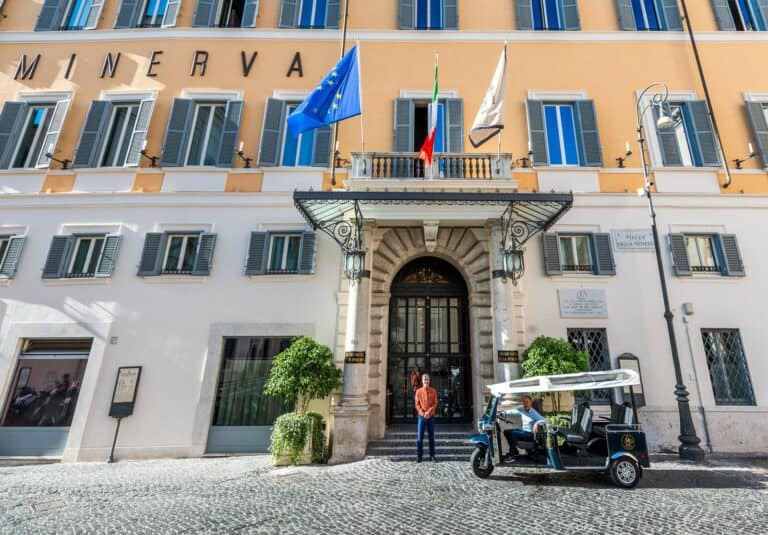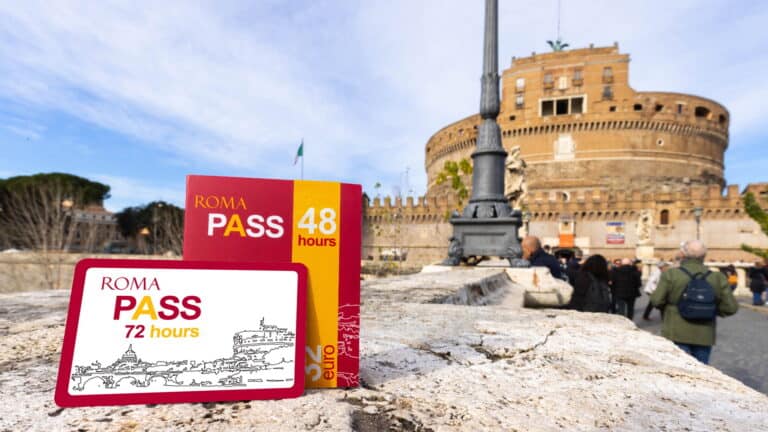Traveling to Italy is a dream for many, but navigating the maze of visa requirements can be daunting. With regulations constantly changing, it’s essential for American travelers to stay informed about entry requirements before packing their bags.
Currently, U.S. citizens can enjoy visa exemptions for short stays, but upcoming changes like the ETIAS may impact future travels. Understanding different types of visas for various activities—such as long-term stays, work, or study—also plays a crucial role in planning a successful trip.
This article aims to clarify the current visa landscape, provide essential tips for obtaining necessary documents, and highlight additional entry requirements. Armed with the right information, you can approach your Italian adventure with confidence.
Understanding Visa Requirements for Americans
If you are an American planning to travel to Italy, you might wonder if you need a visa. U.S. citizens can visit Italy for up to 90 days without a visa for tourism, business purposes, or family visits.
Requirements Overview:
- Valid Passport: Ensure your passport is valid for at least three months beyond your planned stay.
- Proof of Accommodation: Have documentation showing where you will be staying.
- Travel Insurance: It is advisable to have medical insurance covering any health services you might need.
Important Points:
- Entry Requirements: Check that your travel document is up to date.
- Type of Visa: For stays over 90 days or non-tourist activities, you will need to apply for a Schengen Visa.
- Italian Consulates: For detailed visa requirements, visit the Italian consulate or their official Internet sites.
Always double-check these details a few days before arrival to ensure entry into Italy.
Documents Needed | Purpose |
|---|---|
Valid Passport | Entry to Italy |
Proof of Accommodation | Stay verification |
Travel Insurance | Coverage of medical services |
Planning properly will help make your travel to Italy smooth and enjoyable.
Current Visa Regulations
Traveling to Italy as an American citizen comes with specific guidelines. For trips spanning up to 90 days, you do not need a visa if your visit is for tourism, business purposes, or family matters. This applies to many European countries, making travel more accessible.
Visa exemption for short stays (tourism/business)
U.S. travelers enjoy the convenience of visa-free entry into Italy when their stay does not exceed 90 days. However, there are essential requirements to meet:
- Valid Passport: Your passport must be valid for at least three months beyond your exit date.
- Proof of Accommodation: You’ll need to show where you will be staying during your visit.
- Travel Insurance: Though not mandatory, having medical insurance is recommended to cover any potential health services.
For visits over 90 days or other purposes, you must apply for a Schengen Visa through the Italian consulates.
Upcoming ETIAS requirements
Starting in 2025, Americans will need an ETIAS (European Travel Information and Authorization System) to enter Italy and other Schengen Area countries. This is not a visa but a travel authorization that travelers need to apply for online before their trip.
- Application Process: Complete the ETIAS application form online.
- Additional Documents: Ensure you have a valid passport and potentially other documents to apply.
- Country of Citizenship: The system checks the traveler’s data based on their country of origin and citizenship.
By keeping the entry requirements in mind and staying informed about upcoming changes, your journey to Italy can be seamless and enjoyable.
Types of Activities Requiring a Visa
When considering travel plans to Italy, it’s vital to understand the visa requirements. A visa is not needed for short stays, but certain activities require one. Let’s explore the scenarios where a visa is necessary.
Long-term stays (more than 90 days)
If you plan to stay in Italy for more than 90 days, you will need a visa. This applies to U.S. citizens and other passport holders. The type of visa depends on your purpose of stay. Whether for personal reasons, work, or study, securing a long-term entry visa is essential. The process involves the Italian consulate, and you’ll need to provide various documents.
Work-related visas
For those intending to work in Italy, a specific visa is needed. This is not just for traditional jobs but also for self-employment and business purposes. The application process requires several documents, including proof of accommodation and a valid passport. You may also need a contract or a letter from the Italian employer.
Study-related visas
Students wishing to study in Italy for more than 90 days will require a study visa. The Italian visa application form will ask for details about your educational program. Additional documents like an acceptance letter from the educational institution and proof of sufficient funds are crucial. Make sure you also have health and medical insurance.
Here’s a table summarizing the types of visas based on activity:
Activity Type | Visa Requirement | Key Documents |
|---|---|---|
Long-term Stays | Yes | Valid passport, application form |
Work-Related | Yes | Employment contract, proof of residence |
Study-Related | Yes | Acceptance letter, health insurance |
Understanding these requirements will ensure a smooth application process for your intended stay. Always check the latest updates from Italian consulates and relevant Internet sites to confirm current entry requirements.
Requirements for Obtaining an Italy Schengen Visa
Traveling to Italy is a dream for many. But for some, it might mean getting a Schengen Visa. This visa allows you to enter Italy and other European countries within the Schengen Area. The process can vary depending on your citizenship and purpose of travel. Knowing the entry requirements will guide you through the visa application. To make the process smooth, you’ll need to prepare some key documents.
Required Documentation
When applying for an Italy Schengen Visa, you need to submit several documents. Here is a list of what you must provide:
- Valid Passport: Your passport should be valid for at least three months after your planned departure from Italy. It must have at least two blank pages.
- Visa Application Form: Fill out the Italian visa application form completely. Be sure to sign it.
- Passport Photo: Include a recent passport-sized photo that meets Schengen rules.
- Travel Insurance: Proof of medical insurance covering at least 30,000 Euros for medical services, including emergencies and repatriation.
- Proof of Accommodation: Show where you’ll be staying in Italy, such as a hotel booking or proof from a host.
- Flight Itinerary: Provide a copy of your flight reservations specifying dates of arrival and departure.
- Proof of Financial Means: Bank statements or payslips showing you can afford your stay.
Special Considerations for Minors
Traveling minors have additional requirements. If a child under 18 is traveling without both parents, here’s what is needed:
- Birth Certificate: Provide the minor’s birth certificate.
- Parental Consent Letter: If only one parent accompanies the child, a notarized letter of consent from the other parent is required. If the child travels alone, both parents must provide consent.
- ID of Parents/Guardians: Copies of the passport or ID of the parents or guardians.
- Letter from School: If the minor is still in school, a letter from the school is needed, confirming enrollment and permission to be absent during the trip.
Employment Status and Its Impact
Your employment status can affect the type of visa you receive. The embassy may request different documents depending on whether you’re employed, self-employed, unemployed, or a student.
- Employed: A letter from your employer stating your job title and salary, along with your recent pay slips.
- Self-employed: Provide business registration proof and recent tax returns.
- Students: A letter from your educational institution confirming your admission. If you’re sponsored, include details of your sponsor.
- Retirees: Proof of pension or other income sources.
Understanding these requirements will ensure you have a smoother process when applying for an Italy Schengen Visa. Make sure to contact Italian consulates for any specific questions based on your situation.
Entry Requirements Beyond Visa
When planning a trip to Italy, American citizens must consider several entry requirements beyond just a visa. Although U.S. travelers do not need a visa for short tourist stays of up to 90 days, they must have a valid passport. This passport should be valid for at least three months past the intended date of departure from the Schengen Area. Having a return or onward ticket and proof of accommodation can also be beneficial. Proof of sufficient funds to cover your stay may be required as well.
Health advisories for travelers
Before traveling to Italy, check for any health advisories. The U.S. Department of State and the Centers for Disease Control and Prevention (CDC) regularly update information on health risks. It’s advisable for travelers to have up-to-date vaccinations and to carry a supply of any prescription medications. Make sure to check entry requirements related to health, such as potential COVID-19 restrictions or health certificates.
Customs and import regulations
When entering Italy, U.S. passport holders should be aware of customs regulations. You can bring personal goods for your stay, but there are limits to certain items. For instance, there are restrictions on alcohol and tobacco quantities. It’s also important to declare any items exceeding the stated limits. Prohibited items include certain foods and plants. Always review the specific guidelines provided by Italian customs authorities to ensure compliance.
Travel insurance considerations
Obtaining travel insurance is highly recommended for American citizens visiting Italy. Travel insurance can cover unexpected events like trip cancellations, lost luggage, or medical emergencies. Since the U.S. health insurance plans may not cover health services abroad, having medical insurance that includes international coverage is crucial. Check with providers that offer comprehensive plans that include health and travel-related incidents.
Below is a comparison of important travel insurance considerations:
Consideration | Description |
|---|---|
Trip Cancellation | Covers pre-paid, non-refundable expenses if canceled. |
Medical Emergencies | Includes coverage for unforeseen health services abroad. |
Lost or Stolen Luggage | Reimbursement for personal items. |
Emergency Evacuation | Covers transport for medical emergencies. |
Having these requirements and recommendations in mind will ensure a smoother and more enjoyable trip to Italy for American travelers.
Tips for a Smooth Travel Experience
Traveling to Italy can be an exciting adventure for American citizens. With proper planning and preparation, your journey can be both smooth and enjoyable. Below, you’ll find valuable tips that will help you prepare for a trip to Italy.
Preparing documentation in advance
Before you plan your trip, you must ensure you have all your documentation ready. U.S. citizens don’t need a visa for tourist or business visits up to 90 days. However, make sure you have a valid passport that won’t expire for at least three months beyond your planned departure from Italy.
Here’s a handy list to help you prepare your documents:
- Valid Passport: Check the expiration date.
- Health Insurance: Ensure that it covers medical services overseas.
- Proof of Accommodation: This could be hotel bookings or a letter from a host.
- Travel Insurance: Consider getting one for extra protection.
- Additional Documents: Prepare any other necessary documents like a return flight ticket or bank statements.
Understanding local customs
Italy is rich in culture and traditions. Understanding local customs can enrich your experience and help you connect with locals. Italians appreciate politeness and take greetings seriously. Make it a point to say “Buongiorno” (Good Morning) or “Buonasera” (Good Evening) when entering shops or restaurants. Also, remember that respect for historical sites is important. Avoid talking loudly and follow dress codes when visiting churches or other sacred places.
Here are a few additional tips:
- Dining Etiquettes: Wait until your host starts eating.
- Dress Code: Dress smartly; it’s a sign of respect.
- Tipping: Not obligatory, but appreciated for good service.
Staying updated on travel policies
Travel policies can change, so it’s important to stay informed. Check for updates on travel-related rules on reliable internet sites. Before your trip, visit the official websites of Italian consulates to see if there are any changes in entry requirements or visa requirements due to health policies.
Keep an eye on:
- Schengen Visa Changes: Although U.S. tourists don’t currently need a visa for short visits, policies can change.
- Health and Safety Rules: Be aware of any health or medical insurance requirements.
- Travel Advisories: Stay informed about any travel warnings or alerts issued for European countries.
By following these guidelines and preparing ahead, you can ensure that your travel to Italy is both smooth and fulfilling. Safe travels!
Conclusion: Confidently Planning Your Trip to Italy
Planning a trip to Italy? As an American citizen, you can travel for up to 90 days without a visa. However, a valid passport is essential for entry. Ensure your passport is up-to-date before your departure!
Consider other entry requirements as well. Here’s a checklist to guide you:
- Valid Passport: Ensure it has at least three months’ validity beyond your departure.
- Travel Insurance: Highly recommended to cover medical services.
- Proof of Accommodation: Needed for your stay in Italy.
- Additional Documents: Sometimes required based on your travel purpose.
For those visiting for business purposes, check if an entry visa is required. Business travelers might need to provide proof of their business activities.
Health insurance is not mandatory, but having it makes access to health services easier. To streamline your trip, gather all necessary documents, and make sure the list of documents is complete.
By understanding the visa requirements and entry guidelines, you can book your tickets with ease. This assures a smooth and enjoyable trip to this beautiful European country. Safe travels!








